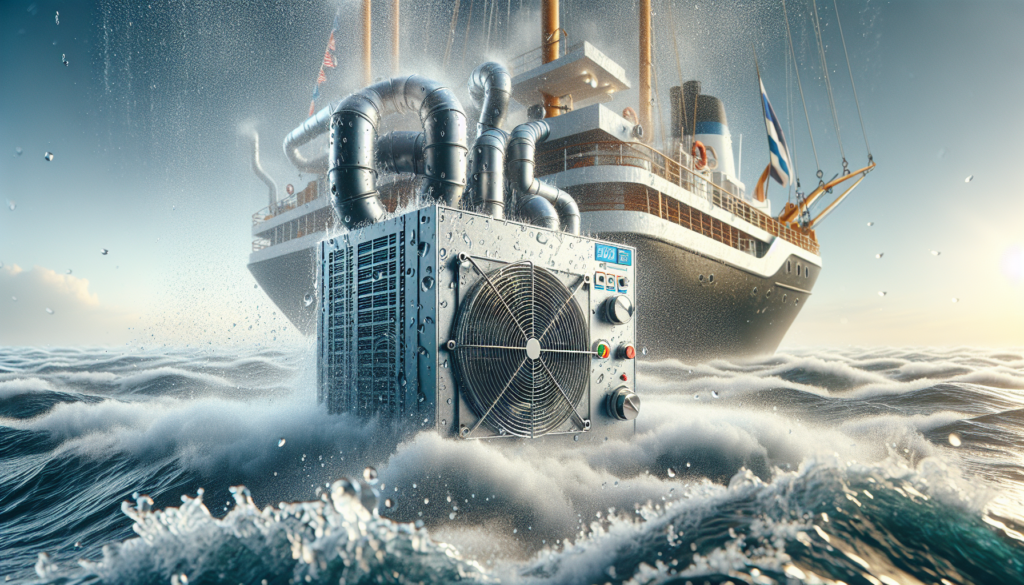Exploring the Depths of Marine Dehumidifiers: A Comprehensive Guide
Imagine setting sail on a serene ocean voyage, only to be met with the unwelcome presence of dampness and mold creeping into your marine vessel. The moisture-laden air not only compromises the structural integrity of your boat but also creates an uncomfortable and unhealthy environment for you and your crew. This is where marine dehumidifiers step in as silent warriors, combating excess humidity and ensuring a dry and safe atmosphere onboard. In this comprehensive guide, we will delve into the world of marine dehumidifiers, exploring their benefits, applications, and significance in maritime settings.
The Importance of Marine Dehumidifiers
Marine dehumidifiers play a crucial role in maintaining the optimal humidity levels within boats, yachts, and other marine vessels. Excess moisture in the air can lead to a host of problems, including mold growth, corrosion of metal components, musty odors, and discomfort for passengers. By extracting moisture from the air, dehumidifiers help prevent these issues and create a healthier and more pleasant environment onboard.
One of the primary reasons for high humidity levels in marine environments is the constant exposure to water. Whether it’s due to leaks, rain, or the natural moisture in the air near bodies of water, boats are particularly susceptible to dampness. Without proper ventilation and humidity control, this excess moisture can wreak havoc on the vessel’s interior, leading to costly repairs and potential health hazards.
The Technology Behind Marine Dehumidifiers
Marine dehumidifiers utilize a variety of techniques to extract moisture from the air and maintain optimal humidity levels onboard. One common method is refrigeration-based dehumidification, where the air is cooled to condense the moisture, which is then collected and drained away. This process not only reduces humidity but also helps cool the air, making it more comfortable for occupants.
Another popular technology used in marine dehumidifiers is desiccant dehumidification, which involves passing the air through a desiccant material that absorbs moisture. The desiccant is then regenerated, releasing the moisture in a separate stream and allowing the process to continue efficiently. This method is particularly effective in low-temperature environments and is often used in conjunction with refrigeration-based systems for optimal results.
Benefits of Marine Dehumidifiers
The benefits of using marine dehumidifiers extend far beyond just preventing mold and corrosion. By maintaining proper humidity levels, these devices help protect electronic equipment, furnishings, and personal belongings onboard. They also contribute to the overall comfort and well-being of passengers by eliminating musty odors and creating a fresh and dry atmosphere.
Furthermore, marine dehumidifiers can improve energy efficiency onboard by reducing the workload on air conditioning systems. By removing excess moisture from the air, dehumidifiers help air conditioners operate more efficiently, leading to lower energy consumption and reduced costs in the long run.
Applications of Marine Dehumidifiers
Marine dehumidifiers find a wide range of applications in various types of vessels, from small pleasure boats to large commercial ships. They are commonly used in cabins, engine rooms, storage areas, and other enclosed spaces where humidity levels tend to be high. By strategically placing dehumidifiers throughout the vessel, boat owners can ensure comprehensive coverage and effective moisture control.
In addition to preventing mold and corrosion, marine dehumidifiers are also used to protect sensitive equipment and electronics onboard. Many modern vessels rely heavily on sophisticated electronic systems, which can be damaged by exposure to moisture. By maintaining a dry environment, dehumidifiers help prolong the lifespan and performance of these critical components.
Choosing the Right Marine Dehumidifier
When selecting a marine dehumidifier for your vessel, there are several factors to consider to ensure optimal performance and efficiency. Size is one of the most critical aspects to take into account, as the capacity of the dehumidifier should match the size and layout of the space it will be servicing. It’s essential to calculate the volume of the area to be dehumidified and choose a unit with the appropriate capacity to handle the moisture load.
Another important factor to consider is the power source for the dehumidifier. While some models run on AC power, others are designed to operate on DC power, making them ideal for boats and yachts without access to shore power. By selecting a dehumidifier that aligns with your vessel’s power requirements, you can ensure uninterrupted moisture control regardless of your location.
Expert Opinions
We reached out to marine industry experts to gather their insights on the importance of marine dehumidifiers. According to Captain John Smith, a seasoned sailor with over 20 years of experience, “Marine dehumidifiers are essential for maintaining a dry and comfortable environment onboard, especially in humid climates. Investing in a high-quality dehumidifier can help prevent costly repairs and ensure the well-being of everyone onboard.”
Dr. Emily Johnson, a marine biologist specializing in marine environmental health, further emphasizes the significance of controlling humidity levels in marine vessels. “Excess moisture can not only damage the vessel but also pose health risks to passengers, such as respiratory issues and allergies. Marine dehumidifiers are a simple yet effective solution to mitigate these risks and create a safe and healthy onboard environment.”
Common Misconceptions
One common misconception about marine dehumidifiers is that they are only necessary in cold or wet climates. While it’s true that humidity levels are typically higher in these environments, boats in any location can benefit from the use of dehumidifiers. Even in dry climates, vessels can experience condensation and moisture buildup, especially in enclosed spaces where air circulation is limited.
Another misconception is that opening hatches and windows is sufficient to control humidity onboard. While ventilation is important in preventing stagnant air and moisture buildup, it may not be enough to combat high humidity levels effectively. Marine dehumidifiers offer a targeted and reliable solution for removing excess moisture from the air and maintaining a dry environment onboard.
Conclusion
To wrap things up, marine dehumidifiers play a vital role in maintaining a dry, comfortable, and healthy environment onboard marine vessels. By extracting excess moisture from the air, these devices help prevent mold growth, corrosion, and other issues associated with high humidity levels. Whether you’re a boat owner, captain, or marine enthusiast, investing in a quality dehumidifier can have a significant impact on the longevity and well-being of your vessel and its occupants. So, next time you set sail, make sure to keep your vessel dry and safe with the help of a reliable marine dehumidifier.



